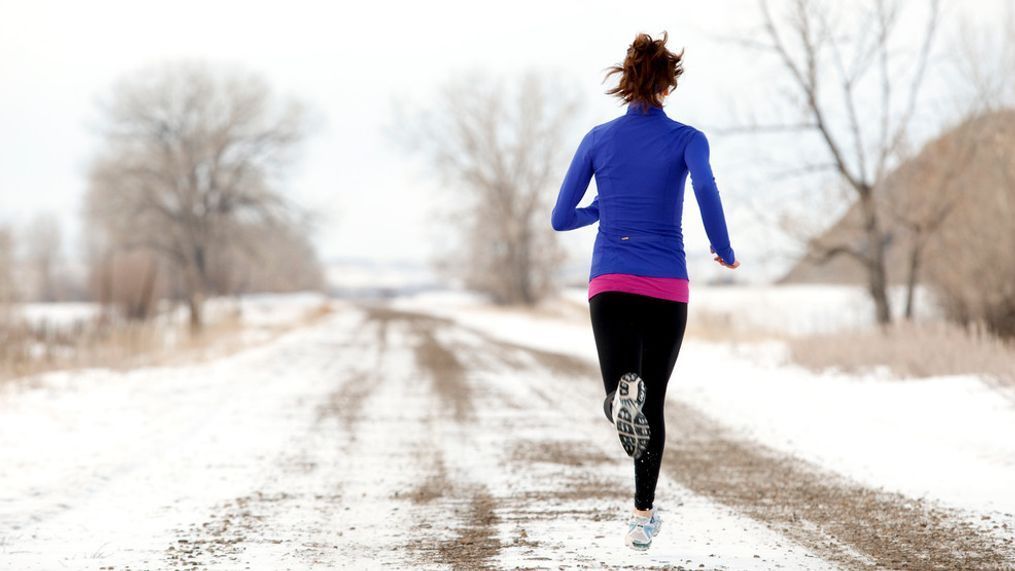Don't let cold weather freeze your workout routine

It's easy to hibernate when the weather is dreary. Who wants to feel wet and cold while they exercise? At the same time, you can't deny your body regular exercise because of how the weather looks. You have to find ways to get your heart pumping even when you don't want to go outside.
Exercising in the cold isn't all bad, either. Unlike in the summer, you won't overheat easily in the winter, and a steady rainfall might actually refresh you and keep you going.
No matter what the temperature is, exercise requires preparation. The precautions you need to take before you start your workout are different in the winter than they are during the summer. Keep this in mind as you tackle your fitness goals in 2021.
Be wary of injury
Warming up is more necessary in chillier climates because cold muscles are more susceptible to injury. Move your arms in circles, jog in place, and perform lunges before you begin any strenuous activity in cold weather. You also shouldn't do any static stretching before you warm up. These stretches lack movement that can get your blood flowing and loosen your joints, making you even more susceptible to injury.
When you begin your workout, watch out for icy surfaces. Opt for grassy areas or dirt paths when possible to increase the traction underneath your shoes.
Stay warm
Your muscles will feel tighter as they get colder, and you'll have a reduced range of motion. When muscles are cold, they need to work harder to move and lift, so that means you'll be sorer the next day. Try to keep your muscles warm by bringing extra layers, starting with a sweat-wicking base and adding from there. Cotton absorbs sweat, which can make you feel colder. Bring a hat or ear-warmers, so you don't lose body heat through your head.
Protect your skin and body
Unless you cover every inch of your body in clothing, some of your skin will be exposed to the elements. Prepare to moisturize your skin regularly during the winter to combat the ill effects of cold temperatures. Even non-freezing temperatures can inflame blood vessels, causing red and itchy patches to form, usually on your fingers, toes, ears, and cheeks. You may also develop hypothermia if you are outside in cold temperatures for prolonged periods, even though your body generates more heat from exercise than it would if you were standing still. Put a time limit on how long you are outside, especially if you don't bring many protective layers.
Don't neglect sunscreen, either. Sunburns aren't about how hot it is. Your skin burns based on exposure to sunlight, and that exposure can intensify when you are surrounded by snow, reflecting the sun's harmful rays.
Stay hydrated
You may sweat less in cold temperatures, which will help your pores stay clear and your body retain more of the water you drink. Hydration remains essential for many other bodily processes, including organ function, nutrient delivery, sleep quality, and immune system function.
Reap the benefits
Exercising in the winter might actually burn more calories than in the summer. A process called thermogenesis (meaning heat production) increases in chilly temperatures. Studies have shown that cold temperatures also help convert white fat into brown fat, which burns calories more effectively. In other words, you burn more calories when you're cold. Boost your body's thermogenesis even more by drinking coffee or green tea, two hot drinks you probably already consume frequently during colder months.
As unpleasant as it sometimes seems, exercising in the cold may help you reach your fitness goals faster than you would in the summer. Compare your results with calorie-tracking devices and see what works for you and remember to take the necessary precautions to keep yourself safe during your workouts.
This article is for informational purposes only and is not intended to diagnose or treat any condition. If you have any concerns, please speak with your doctor.
Sinclair Broadcast Group is committed to the health and well-being of our viewers, which is why we initiated Sinclair Cares. Every month we'll bring you information about the "Cause of the Month," including topical information, education, awareness, and prevention. January is Shape Up U.S. Month.
